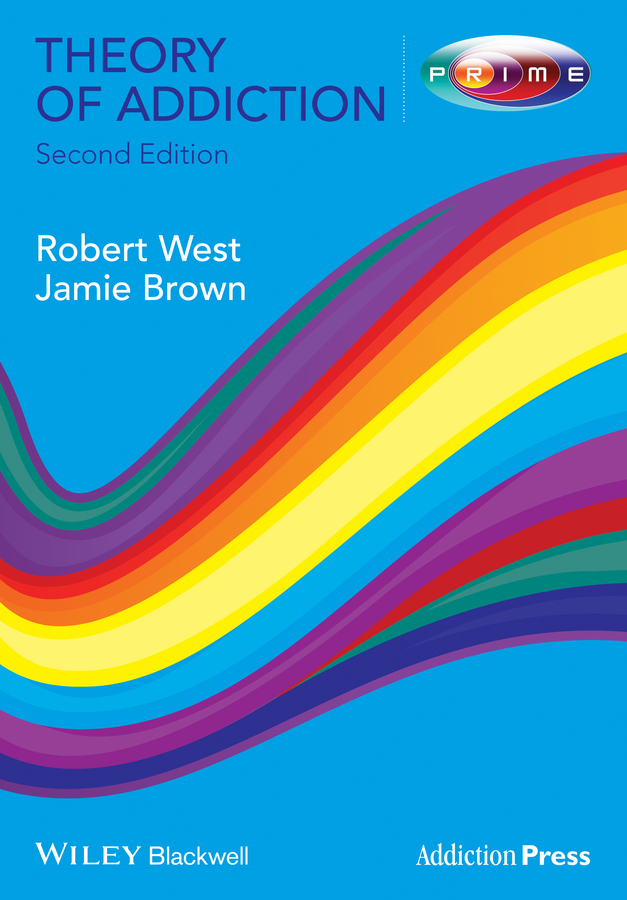Электронная книга: West Robert «Theory of Addiction»

|
The word‘addiction’ these days is used to refer to a chronic condition where there is an unhealthily powerful motivation to engage in a particular behaviour. This can be driven by many different factors – physiological, psychological, environmental and social. If we say that it is all about X, we missV, W, Y and Z. So, some people think addicts are using drugs to escape from unhappy lives, feelings of anxiety and so on; many are. Some people think drugs become addictive because they alter the brain chemistry to create powerful urges; that is often true. Others think that drug taking is about seeking after pleasure; often it is. Some take the view that addiction is a choice – addicts weigh up the pros and cons of doing what they do and decide the former outweigh the latter. Yet others believe that addicts suffer from poor impulse control; that is often true… And so it goes on. When youlook at the evidence, you see that all these positions capture important aspects of the problem – but they are not complete explanations. Neuroscience can help us delve more deeply into some of these explanations, while the behavioural and social sciences are better at exploring others. We need amodel that puts all this together in a way that can help us decide what to do in different cases. Should we prescribe a drug, give the person some ‘tender loving care’, put them in prison or what? Theory of Addiction provides this synthesis. The first edition was well received: ‘Throughout the book the reader is exposed to a vast number of useful observations…The theoretical aims are timely, refreshing, ambitious and above all challenging. It opens up a new way of looking at addiction and has the potential to move the field of addiction a considerable leap forward. Thus we wholeheartedly would like to recommend the book for students as well as scholars. Read and learn!’ Nordic Studies on Alcohol and Drugs ‘The book provides a comprehensive review of existing theories – over 30 in all – and this synthesis of theories constitutes an important contribution in and of itself…West is to be commended for his synthesis of addiction theories that span neurobiology, psychology and social science and for his insights into what remains unexplained.’ Addiction This new edition of Theory of Addiction builds on the first, including additional theories in the field, a more developed specification of PRIME theory and analysis of the expanding evidence base. With this important new information, Theory of Addiction will continue to be essential reading for all those working in addiction, from student to experienced practitioner – as urged above, Read and learn! Издательство: "John Wiley&Sons Limited"
ISBN: 9781118484920 электронная книга Купить за 4370 руб и скачать на Litres |
Другие книги схожей тематики:
| Автор | Книга | Описание | Год | Цена | Тип книги |
|---|---|---|---|---|---|
| Virginia Kelly A. | Addiction in the Family. What Every Counselor Needs to Know | This book identifies and addresses potential clinical issues for clients who have family members struggling with addiction, and offers concrete strategies for treatment. Viewing addiction as a family… — John Wiley&Sons Limited, электронная книга Подробнее... | 3856.43 | электронная книга | |
| Ingrid Sochting | Cognitive Behavioral Group Therapy. Challenges and Opportunities | With coverage of the latest theory and research, this is a complete guide to implementing cognitive behavioral group therapy for practitioners and trainees in a range of mental health disciplines… — John Wiley&Sons Limited, электронная книга Подробнее... | 9185.4 | электронная книга |
См. также в других словарях:
Theory of justification — is a part of epistemology that attempts to understand the justification of propositions and beliefs. Epistemologists are concerned with various epistemic features of belief, which include the ideas of justification, warrant, rationality, and… … Wikipedia
Rational addiction — The hypothesis that addictions (to heroin, tobacco, television, etc.) can be usefully modeled as a specific kind of rational, forward looking, optimal consumption plans. The canonical theory is due to Kevin M. Murphy and Nobel Prize Winner Gary S … Wikipedia
Opponent-process theory — For its application to color theory, see Opponent process. Opponent process theory is a universal psychological and neurological model proposed by Ewald Hering to account for a wide range of behaviors including color vision; this model was… … Wikipedia
Drug addiction — is widely considered a pathological state. The disorder of addiction involves the progression of acute drug use to the development of drug seeking behavior, the vulnerability to relapse, and the decreased, slowed ability to respond to naturally… … Wikipedia
Disease theory of alcoholism — Alcohol Dependence Classification and external resources ICD 10 F10.2 ICD 9 303 … Wikipedia
Melanin theory — is a pseudoscientific theory, founded in the distortion of the known physical properties of melanin, a natural polymer and organic semiconductor.[1] In humans, melanin is the primary determinant of skin color. People whose ancestors lived for… … Wikipedia
